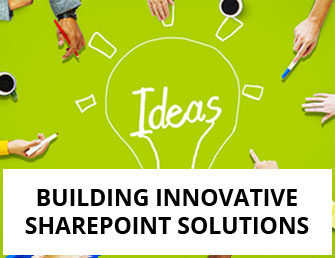Blockchain is valuable for any transactions where values and timestamps need to be recorded in an immutable manner. No doubt, banking and financial services have been the earliest adopters of the blockchain revolution, however, enterprise blockchain, or private blockchain, is seeing increasing adoption across a variety of use cases including supply chain, healthcare, distribution, digital currencies like Bitcoin, manufacturing, mobile banking, e-governance, regulatory frameworks, and professional services. In public blockchains, the transactions are completed through a public key and private key, which are validated by the majority of network participants. This way, the trust is distributed and there is hardly any possibility of fraud as the transactions are verified by the network participants, not a centralized entity like a bank.
Federated blockchain is the leading trend in the industry which is controlled by multiple organizations instead of one which can control the pre-selected nodes of the federated blockchain. The selected group from various nodes can validate the block in order to process the transaction further. Another emerging trend is BaaS or blockchain-as-a-service, which is a cloud-based service that enables the network participants to own their own digital products on the blockchain. BaaS leverages cloud-based solutions to build, host and use custom-made blockchain apps while the service provider handles and manages all the essential functions required to keep blockchain infrastructure operational and agile.
Technologies used in blockchain development
Most of these products are smart contracts or applications. Microsoft (Azure), Amazon (AWS Amplify) and SAP are among the leading developers of BaaS solutions. Blockchain interoperability provides the users the ability to share data and other information across multiple blockchain systems as well as networks, cross-chain transactions and multi-token transactions. For example, the users can transfer data from a specific Ethereum blockchain to the EOS blockchain. Hybrid blockchain operates in a closed system, hence every piece of information on the network remains secure. Recardian contract is a human-readable smart contract that gets converted into a machine-readable contract that defines the listed intentions of both the involved parties.
Blockchain is finding widespread applications across a variety of industries including insurance, loans & credit, wills & inheritance, hospitality, infrastructure, 3D printing, construction & architecture, e-commerce, agriculture & mining, crypto exchanges, internet identity and DNS, business & corporate governance, crowdfunding, and more.
Popular blockchain development languages
Solidity is one of the most popular languages used in blockchain development which is designed to target the Ethereum Virtual Machine or EVM. It is statistically typed, supports inheritance and complex user-defined types. Solidity supports OOP paradigm, and is used for smart contracts by the blockchain developers who can write applications that can execute self-enforcing business logic embodied in smart contracts. Solc (Solidity Compiler) is a command-line compiler written in C++ that converts Solidity scripts into a more readable format for the EVM. Solc is coded in C++ while Solc-js uses Emscripten to cross-compile from the Solc source code from C++ to JavaScript. Solc comes natively with the most Ethereum nodes and can be used for offline compiling.
Remix IDE is a browser-based blockchain tool which is written in JavaScript for deploying smart contracts written in Solidity. It can be used to seamlessly connect to the Ethereum blockchain through Metamask, which is a wallet designed to function as a bridge between Ethereum blockchain and a browser. The software platform allows you to serve Ether and other ERC-20 assets while also letting you to interact with Ethereum Dapps (decentralized apps). Truffle is an Ethereum blockchain framework which is equipped with a vast library that provides custom deployment for writing new smart contracts. Ganache is a blockchain from the Truffle Suite that allows the developers to create their own private Ethereum blockchain to test dApps and execute commands.
Developing blockchain capabilities for you
Whether you need a prototype or a production-ready platform, the expert of Flexsin’s blockchain development team can help you leverage the benefits of blockchain. The experts at the Flexsin blockchain development company will evaluate the potential blockchains for your project, including Ethereum, EOS, Hyperledger, Tezon, NEO, Qtum, and more, and choose the best fit for your applications. Flexsin blockchain development company’s capabilities include blockchain deployment and development, enterprise native mobile apps, smart contracts, web platforms using Elixir, Phoenix, and serverless architecture, innovation in blockchain, blockchain and internet of things (IoT), privacy, security and identity in blockchain, and more.


 Anurag Dutt
Anurag Dutt


